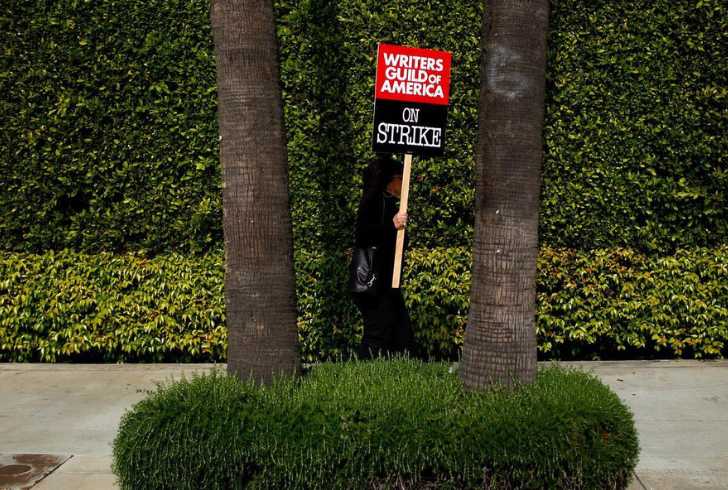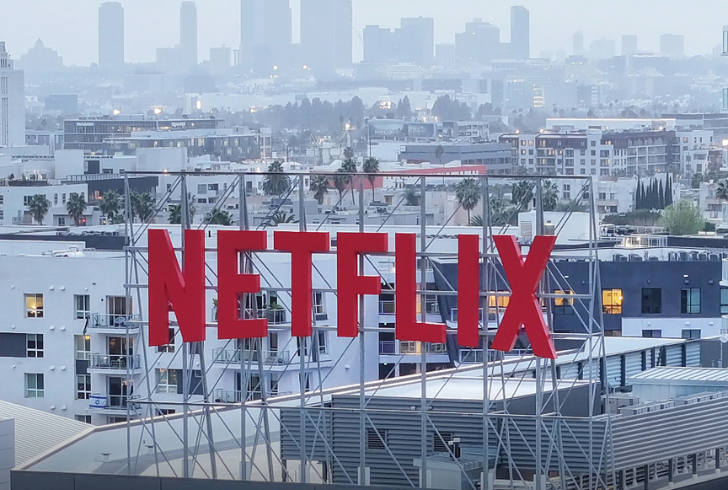The streaming wars have transformed the entertainment landscape in recent years, driving an unprecedented surge in content production and audience engagement. However, this once-thriving industry is now experiencing a significant downturn. Actors and production teams who once reveled in a booming market now find themselves grappling with job losses, project cancellations, and economic uncertainty.
A New Era of Content Creation
In the early days of streaming, platforms like Netflix, Hulu, and Disney+ revolutionized how audiences consumed media. As subscription services gained traction, the competition intensified, prompting studios to invest heavily in original programming. This golden age saw the emergence of countless scripted series, from groundbreaking dramas to light-hearted comedies, creating a wealth of content that catered to diverse tastes.
Despite the initial success, the aggressive push for content began to take its toll. By May 2023, the writers’ strike initiated a ripple effect that reverberated throughout the industry. For the first time in decades, both writers and actors united, halting production across Hollywood. The subsequent months were marked by uncertainty as studios struggled to navigate the fallout of these strikes.
The Impact of the Writers' and Actors' Strikes

Freepik | jlcvisuals | The writers' and actors' strikes brought Hollywood production to a near halt.
The combined writers' and actors' strikes significantly impacted Hollywood's output, effectively bringing production to a standstill. As these labor actions unfolded, projects were put on indefinite hold, leaving countless production crews and talent in limbo. The once-thriving industry now faced a stark reality - a significant reduction in available work.
Current Statistics:
1. Unemployment Rate - As of August 2024, unemployment in film and TV hit 12.5%, though many believe this figure does not accurately reflect the true extent of job losses. Numerous industry workers remain ineligible for unemployment benefits, further complicating their circumstances.
2. Production Decline - The number of U.S. productions dropped by about 40% in the second quarter of 2024 compared to the same period in 2022, while the global decline stood at 20%, according to industry trackers.
These figures illustrate a significant downturn as Hollywood struggles to rebound from the effects of the strikes.
The Evolving Streaming Landscape
The streaming wars initially fueled rapid growth, but many experts now argue that the boom was unsustainable. The need for studios to adapt to a shifting landscape has never been more apparent. As consumers increasingly reject cable TV in favor of on-demand streaming, studios must find innovative ways to monetize their offerings.
Matthew Belloni, the founder of Puck News, aptly described the current situation as a crisis, stating, "The air has come out of the content bubble." This sentiment captures the anxiety permeating the industry as executives scramble to recalibrate their strategies in light of the changing economic landscape.
The Role of Wall Street in Content Overproduction
The rapid rise of streaming services was closely tied to the enthusiasm of Wall Street investors. Companies like Netflix saw their stock prices soar, prompting studios to launch their streaming platforms. However, this surge led to an oversaturation of content. With a staggering 600 scripted live-action series vying for viewers' attention, the market became overheated. As investor expectations shifted, many studios struggled to adjust.

Instagram | financialtimes | Netflix's stock price skyrocketed, prompting a wave of streaming platform launches that ultimately created a saturated market.
With Netflix's recent recovery, other platforms face ongoing challenges in achieving profitability. The post-pandemic landscape has left many studios reeling, uncertain of how to proceed amidst heightened competition and changing viewer preferences.
The Search for Solutions
In response to the downturn, some states have begun to offer enticing tax incentives to lure production away from California. This shift poses a challenge for Los Angeles, where city officials recognize the entertainment industry's significance to the local economy. Mayor Karen Bass recently established a task force to explore new incentives, emphasizing that the entertainment sector remains vital to the region's financial health.
Duncan Crabtree-Ireland, chief negotiator for the Screen Actors Guild, highlighted the importance of the relationship between studios and creative talent. He expressed optimism about a return to production, stating, "What makes these companies special is their connection with creative talent." Despite the industry's challenges, he believes that innovation and collaboration will be key to revitalizing Hollywood.
Navigating the Future
As Hollywood navigates the aftermath of the strikes and the realities of the streaming wars, the future remains uncertain. For many in the industry, including crew members and performers, the economic fallout has been severe. Once-promising careers are now on shaky ground, leaving many questioning their next steps.
Yet, there remains a glimmer of hope as the industry adapts to changing circumstances. With the potential for renewed collaboration and fresh perspectives, Hollywood can find ways to redefine itself in this new era. While the streaming wars may have shifted the landscape, the resilience of creative talent will play a crucial role in determining the industry's future.
